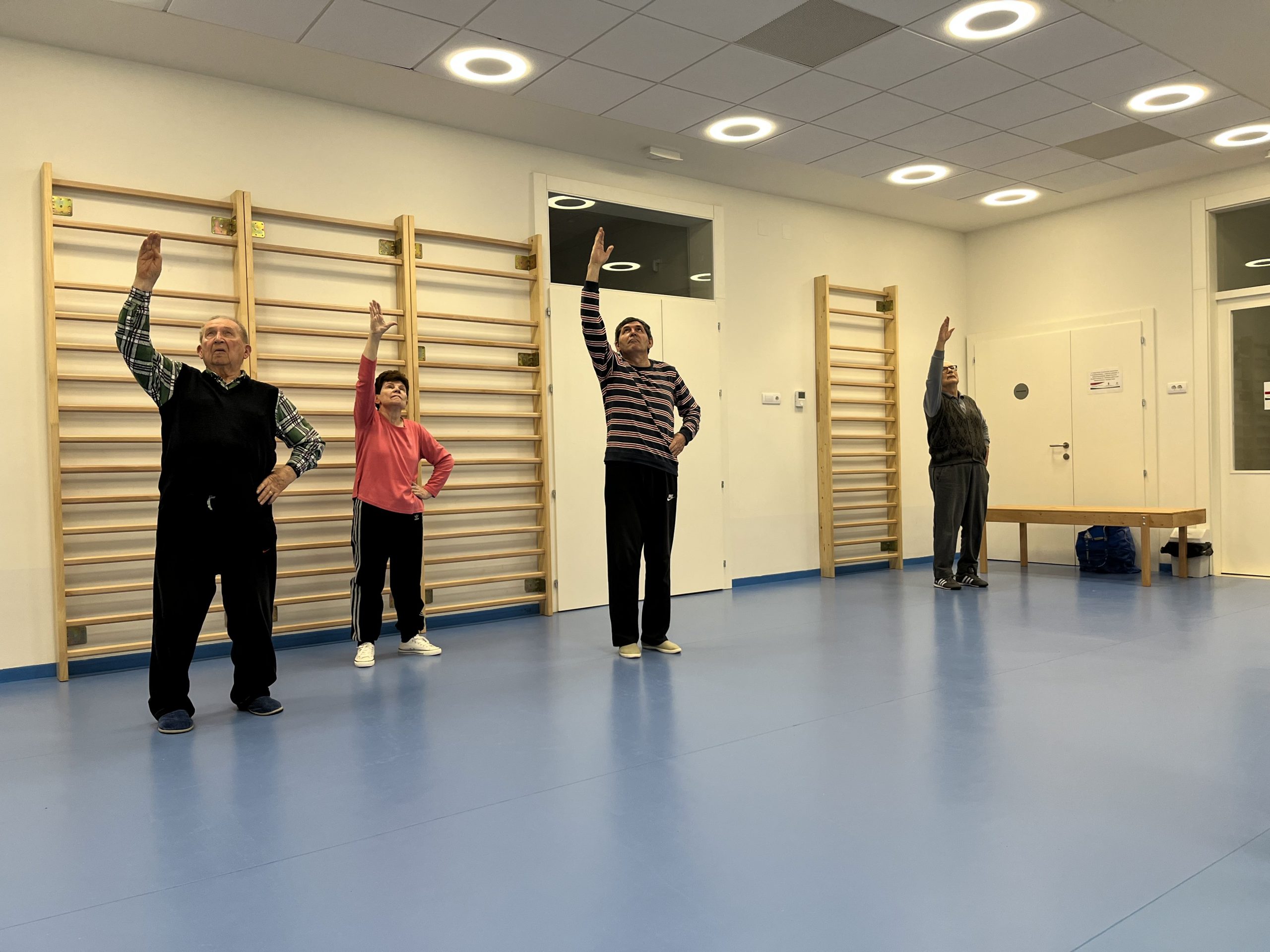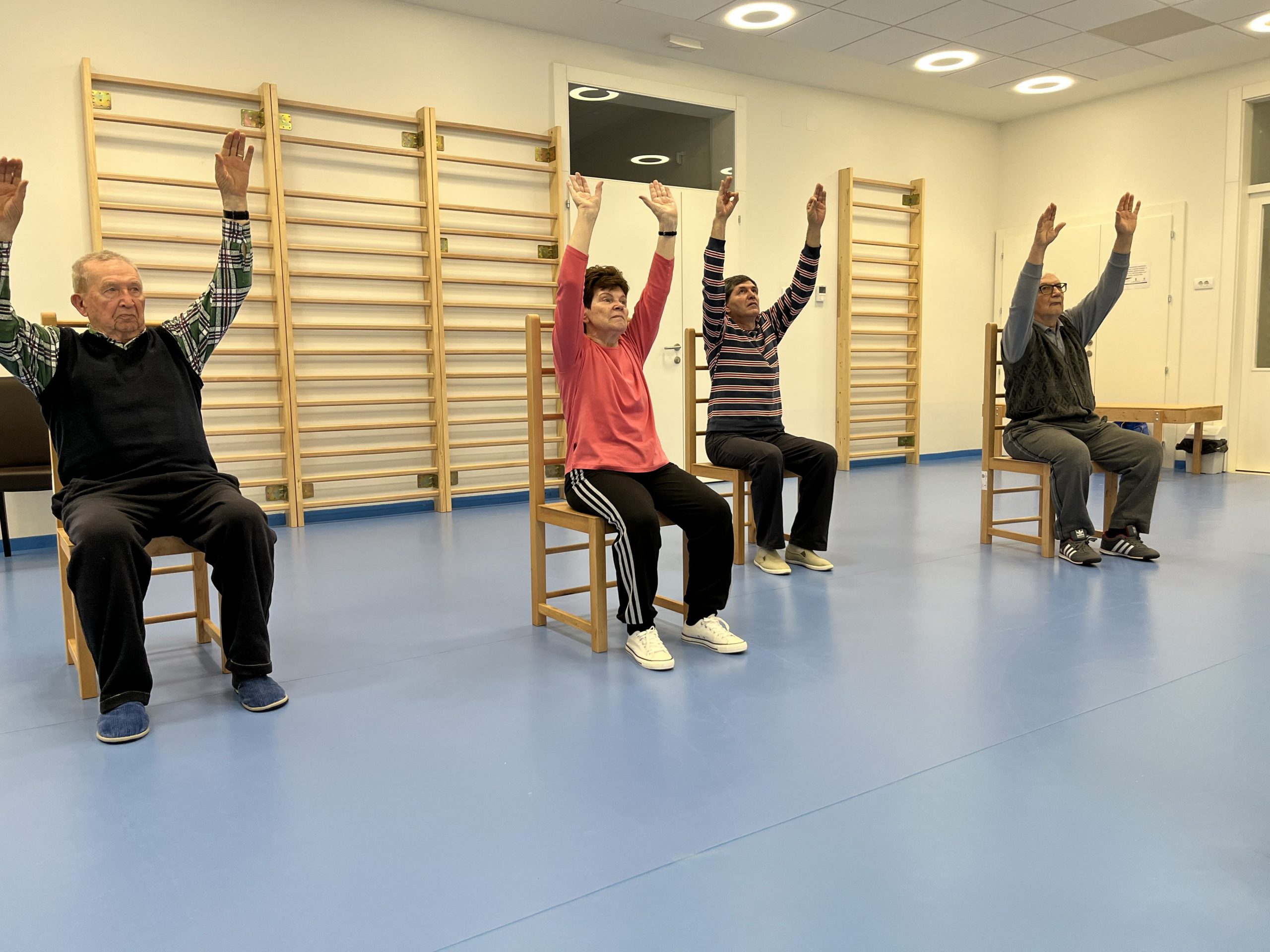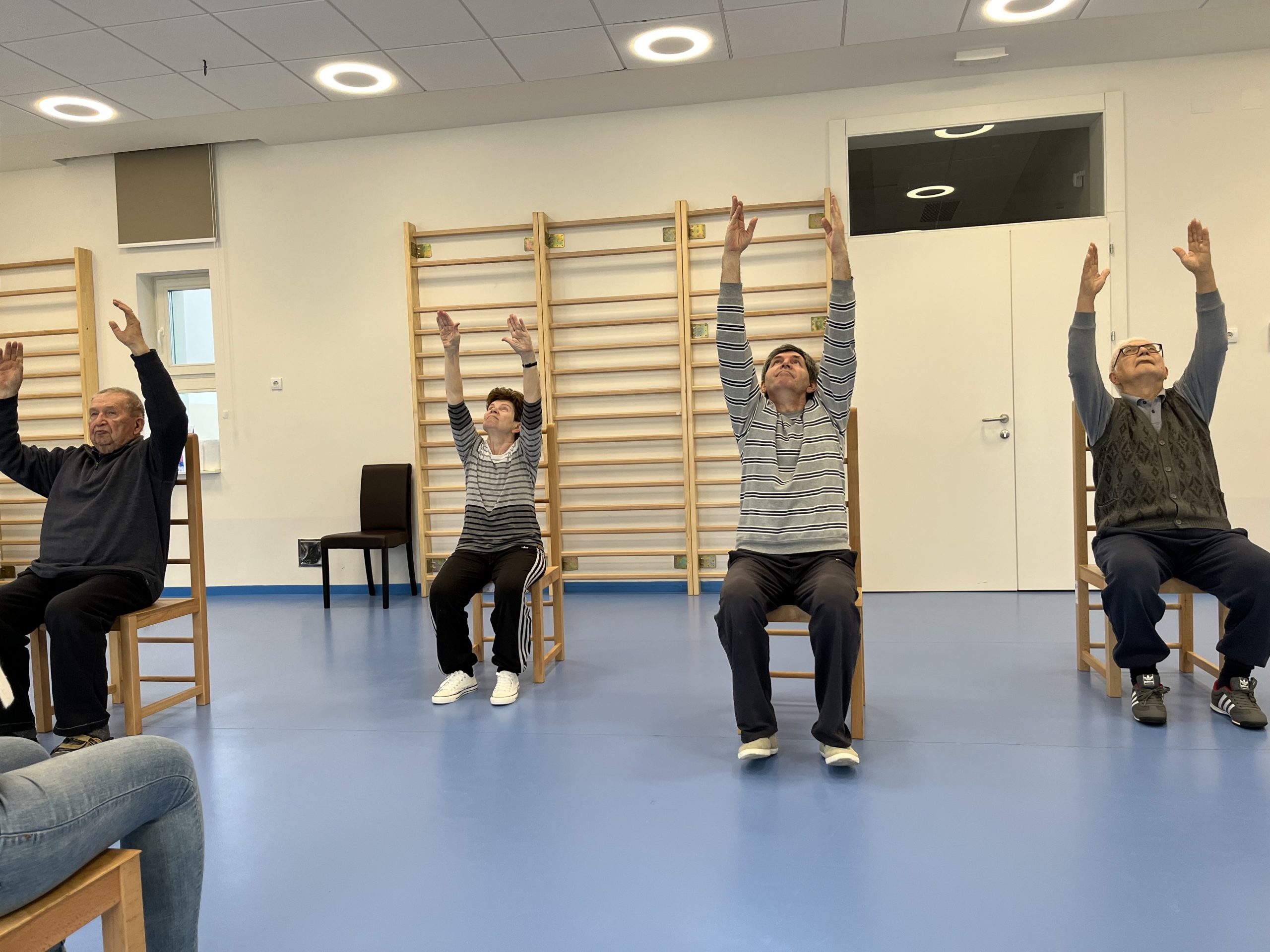Parkinson’s disease
The development of the symptoms of Parkinson’s disease is a consequence of reduced dopamine levels. Dopamine is a neurotransmitter that is the basis of information flow between nerve cells.
Long term consequences:
- slowed movement, starting movement is difficult,
- sudden changes of direction, standing up, sitting down, and turning become difficult, the freezing phenomenon, which means freezing, is common,
- movement coordination, balance disorder,
- rigid muscle,
- tremor (rest tremor),
- expressionless face
- speech disorder, swallowing disorder,
- mental decline, depression, anxiety.
The conductive education is there to support and guide the patient in learning how to move in a more optimal way. It helps the patient to correct their movements and provide individual solutions to help solve movements they may find challenging.
Other adult group services


